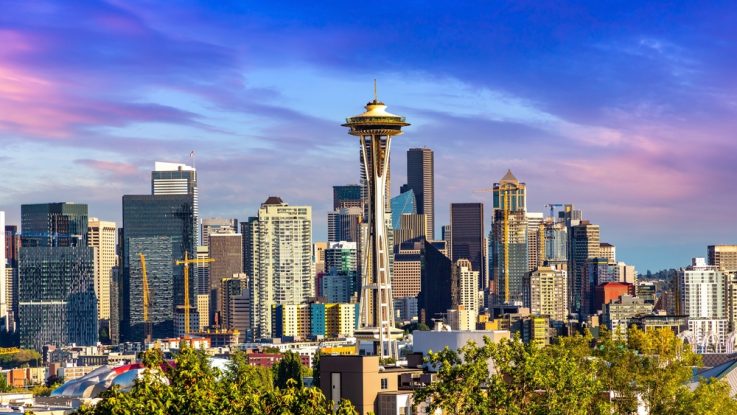
The City of Seattle, WA is offering a new $4,000 bonus rebate for moderate-income households to transition off oil heat to clean electric heat pumps. The rebates are effective through May 2025 (or while funding lasts).
Income-qualified residents will be able to stack this rebate onto the City’s existing $2,000 Clean Heat instant rebate – which is not income restricted – as well as onto a $2,000 federal tax credit when switching an oil heating system to a qualified energy-efficient electric heat pump, for a combined $8,000 in support.
“Burning oil for heating is not only costly to our planet, but also to our residents’ health and monthly expenses,” said Mayor Bruce Harrell. “We are proud to be able to expand our City’s Clean Heat Program through these additional instant rebates, allowing more Seattleites than ever to transition off oil heating, regardless of income. We’re taking another step forward in creating a sustainable and more affordable future for all Seattle residents.”
An average household which has been using 500 gallons of heating oil per year can expect to save more than 50% on their heating costs, or approximately $1,100 per year. Earlier this year, the city received funding for the Clean Heat Program from Washington State’s Climate Commitment Act (CCA). This funding is expected to reduce total greenhouse gas emissions by at least 20,000 MTCO2e – the equivalent of 4,760 gasoline-powered cars taken off the road for a year.
“These Climate Commitment Act investments in clean heat will help us combat the impacts of climate change and build healthy, resilient communities,” said Mayor Bruce Harrell. “By increasing funding for the Clean Heat program, more Seattleites will be able to transition off oil heating than ever before. This is yet another step towards our goals of eliminating all oil heat use by 2030 and creating a sustainable future for all residents. Combined with our other ambitious policies like the Building Emissions Performance Standard which was signed into law last year, Seattle is continuing our legacy of national climate leadership and making buildings part of the solution to the climate crisis.”